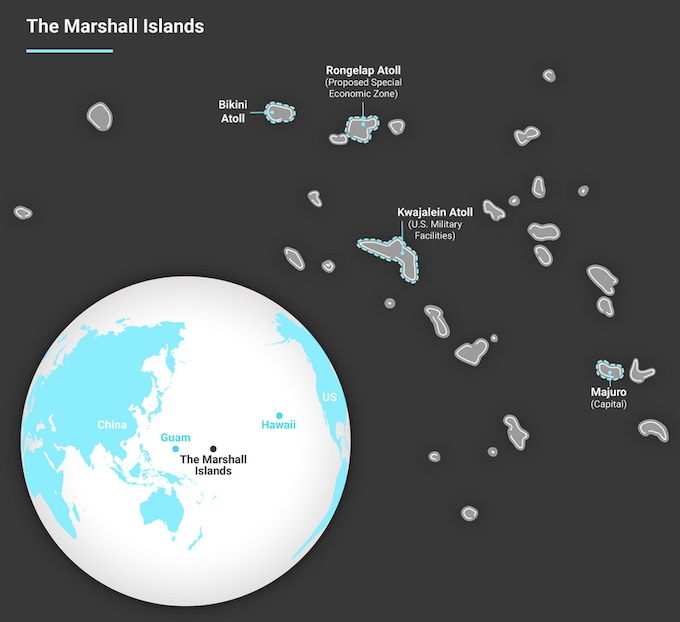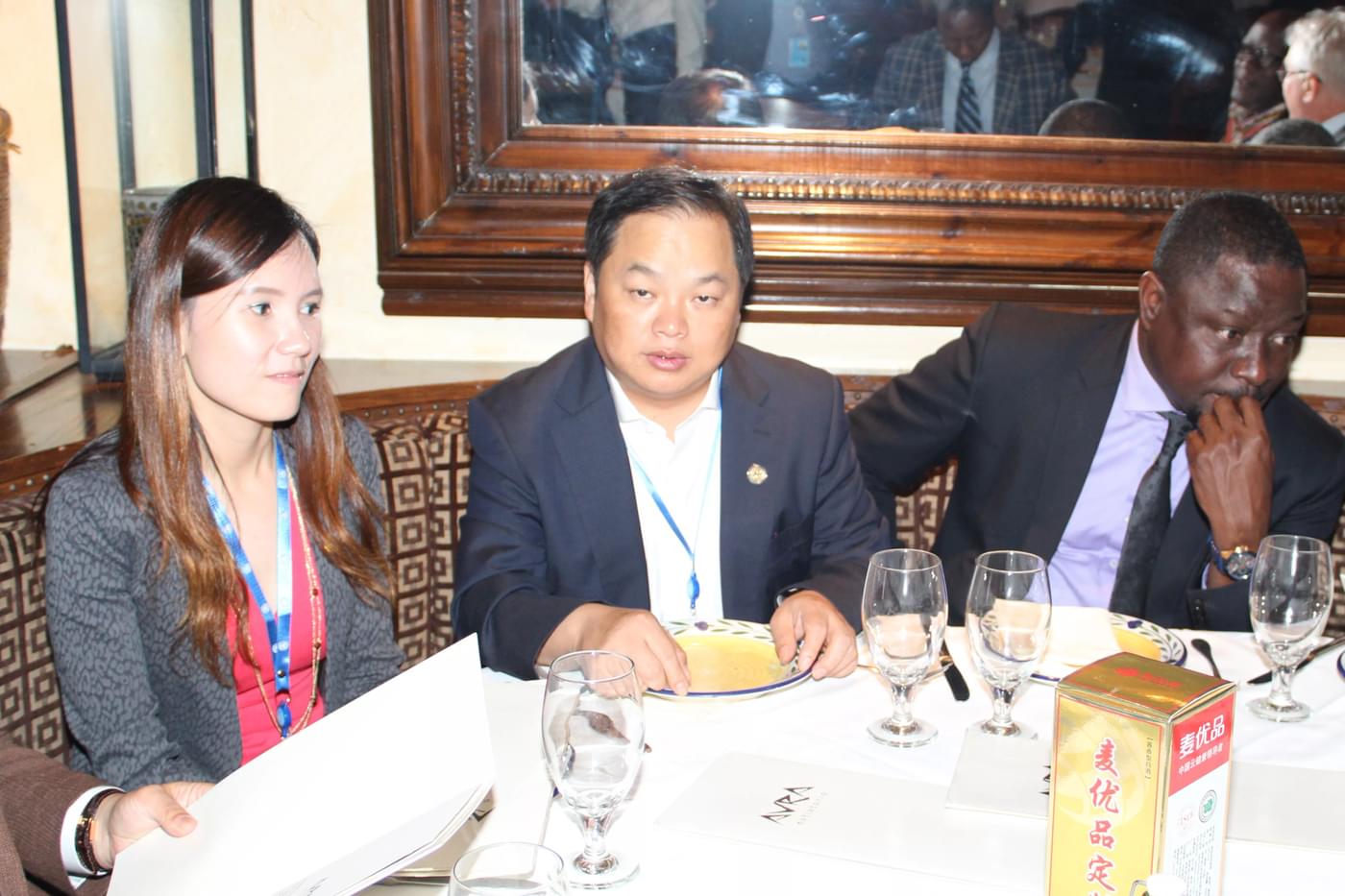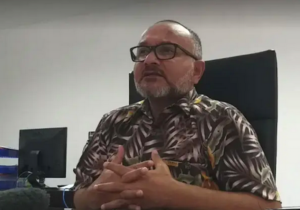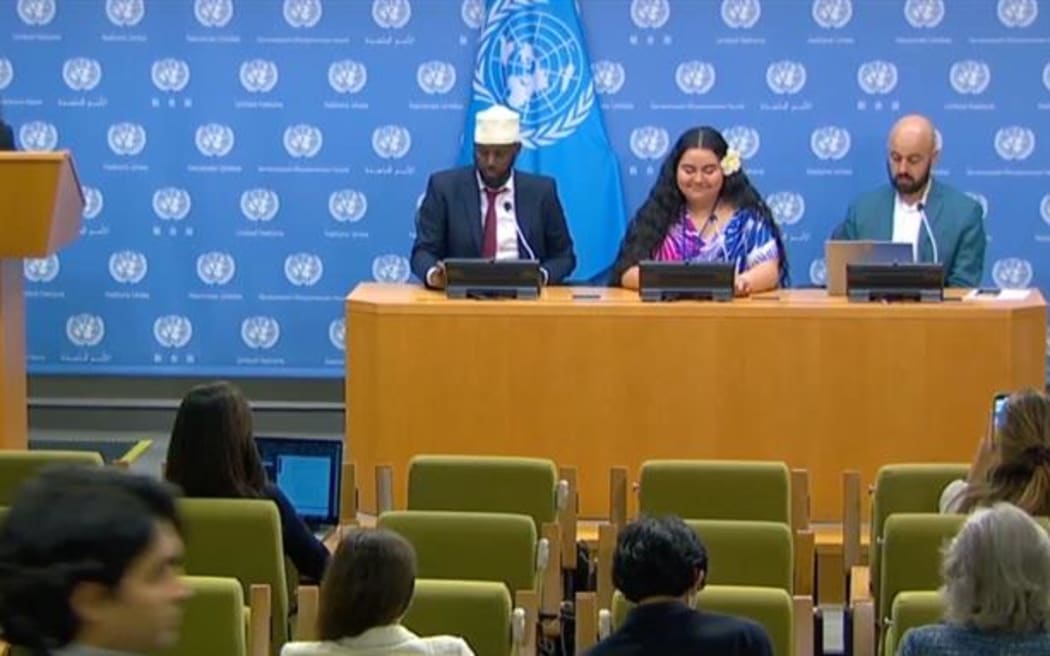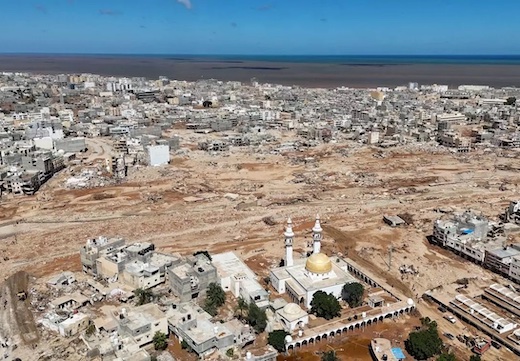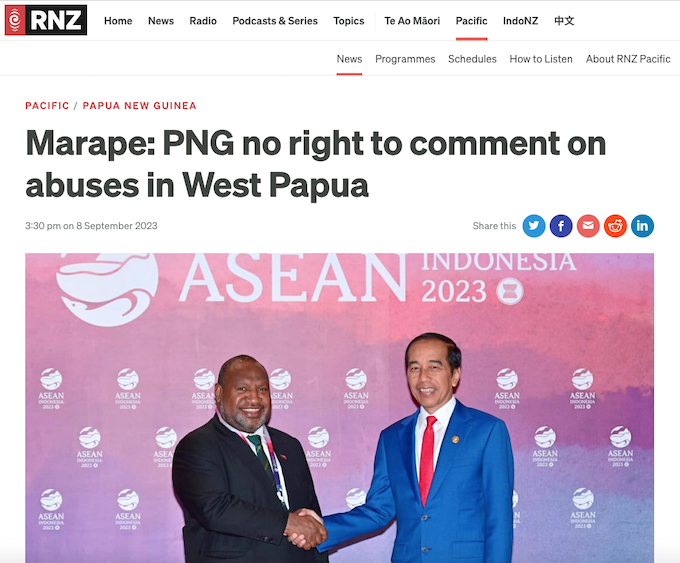1. Doctrine. Zionism was devised by some middle-class Jewish Europeans (most prominently Lev Pinsker and Theodore Herzl) as one response to horrendous late 19th century anti-Jewish persecutions in Europe. Like many of their contemporaries among nationalistic privileged-class European intellectuals and like the Nazis who came later, the Zionists conceived of the world’s Jews as a race. Moreover, they viewed the Jews as: (in their own words) a “parasitic” and “alien” presence within the gentile countries; and therefore a “Jewish problem”, which could only be resolved by removing all or most Jews from the gentile countries to a country of their own, which they decided would need to be in Palestine. Consequently, the Zionists opposed assimilation and disparaged those Jews who assimilated. [1]
2. Colonialism. The Zionists, like other European colonialists, approved of the subjugation of non-white peoples and justified it with the then-commonplace racist rationale that God, or Destiny, had chosen the “superior” Europeans to bring “civilization” to the territories populated by the “primitive” peoples of Africa and Asia. Therefore, no meaningful consideration was given to the rights of the indigenous Palestinian Arabs. [2]
3. Imperialism. The Zionists coalesced in 1897 with the formation of the Zionist Organization [ZO]. Its leaders then began appealing to various European colonialist powers for sponsorship of their proposal to create a so-called Jewish homeland in Palestine. Ultimately, it was Britain which became the imperial sponsor by issuing the Balfour Declaration (1917) calling for “the establishment in Palestine of a national home for the Jewish people”. The British motivations were twofold. [3]
 Firstly, Britain envisioned the creation of a British-allied outpost of European civilization in oil-rich southwest Asia as an instrument for projecting British imperial and commercial power over a part of the world in which British capital and empire were already heavily invested (notably in the Anglo-Persian Oil Company [now BP Inc.], Shell Oil, and the Suez Canal).
Firstly, Britain envisioned the creation of a British-allied outpost of European civilization in oil-rich southwest Asia as an instrument for projecting British imperial and commercial power over a part of the world in which British capital and empire were already heavily invested (notably in the Anglo-Persian Oil Company [now BP Inc.], Shell Oil, and the Suez Canal).
 Secondly, there was the anti-Jewish prejudice of some leading Cabinet members, including former Prime Minister Balfour, who hoped to reduce the Jewish presence in European government, commerce, and the professions.
Secondly, there was the anti-Jewish prejudice of some leading Cabinet members, including former Prime Minister Balfour, who hoped to reduce the Jewish presence in European government, commerce, and the professions.
4. Anti-Arab racism. Jews (4% of the population) and their Muslim and Christian neighbors (85% and 11% respectively) had coexisted amicably in Palestine for many generations prior to the arrival of the Zionists. Zionist doctrine and practice destroyed this relationship.
 During the period of British rule over Palestine (1917—48), sympathetic Jewish capitalists in Europe and the United States provided money for Zionist land acquisitions in Palestine. The Zionists then evicted the Arab tenant farmers thereby violating the traditional rights of the latter. Moreover, the Zionist governing body required that Jewish employers hire only Jews and prohibited the sale of any Jewish-owned land to Arabs. Such racial discrimination was standard practice within the Zionist settlements; and it quite predictably provoked Arab resentment against the Zionist settlers. [4]
During the period of British rule over Palestine (1917—48), sympathetic Jewish capitalists in Europe and the United States provided money for Zionist land acquisitions in Palestine. The Zionists then evicted the Arab tenant farmers thereby violating the traditional rights of the latter. Moreover, the Zionist governing body required that Jewish employers hire only Jews and prohibited the sale of any Jewish-owned land to Arabs. Such racial discrimination was standard practice within the Zionist settlements; and it quite predictably provoked Arab resentment against the Zionist settlers. [4]
 Meanwhile, there were recurring suggestions (in private) by top Zionist leaders (Herzl, Weizmann, Ben-Gurion, and others) that the “Arab problem” could be resolved through “population transfer” to other Arab countries. In fact, from the very beginning, the Zionist leadership intended to eventually expel the indigenous Arab population from Palestine. [5]
Meanwhile, there were recurring suggestions (in private) by top Zionist leaders (Herzl, Weizmann, Ben-Gurion, and others) that the “Arab problem” could be resolved through “population transfer” to other Arab countries. In fact, from the very beginning, the Zionist leadership intended to eventually expel the indigenous Arab population from Palestine. [5]
5. Collusion with anti-Jewish persecutors. For several decades, the Zionist organizations refused to fight for equal rights for Jews. In fact, they acted in concert with the persecutors.
 Whereas many Jews joined other anti-racists (including Communists) in the fight against the chauvinist, xenophobic, and anti-Jewish nationalisms and related persecutions which arose in Europe in the years between the two world wars of the 20th century; the Zionists, largely because of Communist opposition to the racialism at the heart of Zionist ideology, joined the fascists and allied bigots in denouncing the Communists. Meanwhile, the Zionist organizations, claiming to represent the interests of the world’s Jews, refused to fight anti-Jewish bigotry and persecutions. Why? Because they wanted persecuted Jews, not to fight for equal rights within their native countries, but to emigrate to Palestine. To that end, the Zionist organizations routinely colluded with anti-Jewish states in sponsoring migration, legal and illegal, of European Jews to Palestine. [6]
Whereas many Jews joined other anti-racists (including Communists) in the fight against the chauvinist, xenophobic, and anti-Jewish nationalisms and related persecutions which arose in Europe in the years between the two world wars of the 20th century; the Zionists, largely because of Communist opposition to the racialism at the heart of Zionist ideology, joined the fascists and allied bigots in denouncing the Communists. Meanwhile, the Zionist organizations, claiming to represent the interests of the world’s Jews, refused to fight anti-Jewish bigotry and persecutions. Why? Because they wanted persecuted Jews, not to fight for equal rights within their native countries, but to emigrate to Palestine. To that end, the Zionist organizations routinely colluded with anti-Jewish states in sponsoring migration, legal and illegal, of European Jews to Palestine. [6]
 In the 1930s, the New Zionist Organization [NZO] (representing the minority “revisionist” faction) allied itself with fascist Italy until Mussolini broke off the alliance in order to enter the Axis Pact with Hitler. [7]
In the 1930s, the New Zionist Organization [NZO] (representing the minority “revisionist” faction) allied itself with fascist Italy until Mussolini broke off the alliance in order to enter the Axis Pact with Hitler. [7]
 Meanwhile, the German affiliate of the ZO (majority faction) refused to support resistance to Nazi anti-Jewish racial policies in order to maintain cooperation with the Nazi state in promoting and facilitating German Jewish emigration to Palestine. Moreover, the NZO-affiliated German State Zionist Organization (while receiving special favor from the Nazi regime which imposed its leader, Georg Kareski, as director of the Jewish Culture Leagues): praised Nazi policies, opposed the anti-Nazi boycott, and colluded with the Gestapo. [6]
Meanwhile, the German affiliate of the ZO (majority faction) refused to support resistance to Nazi anti-Jewish racial policies in order to maintain cooperation with the Nazi state in promoting and facilitating German Jewish emigration to Palestine. Moreover, the NZO-affiliated German State Zionist Organization (while receiving special favor from the Nazi regime which imposed its leader, Georg Kareski, as director of the Jewish Culture Leagues): praised Nazi policies, opposed the anti-Nazi boycott, and colluded with the Gestapo. [6]
 After the War largely cut off routes for Jewish emigration, Nazi Germany (in 1941) began its extermination project. In 1944, the ZO’s operative (Rezso Kasztner) in Hungary made a bargain with Adolph Eichmann, the Nazi official in charge of exterminating Europe’s Jews. If Kasztner would reassure the Hungarian Jews that they were to be resettled, not killed; then Eichmann would permit the ZO to take a number of select Jews to safety and Palestine. Kasztner provided the false assurance thereby enabling the Nazi SS to avoid significant resistance as it rounded up 450,000 Jewish Hungarians for deportation to the extermination camps. In return, the Nazi SS permitted the ZO to save 1,700 select Jews. Those, who had assimilated, or were non-Zionist, or were insufficiently young and vigorous were excluded and thereby left to be exterminated by the Nazis. [8]
After the War largely cut off routes for Jewish emigration, Nazi Germany (in 1941) began its extermination project. In 1944, the ZO’s operative (Rezso Kasztner) in Hungary made a bargain with Adolph Eichmann, the Nazi official in charge of exterminating Europe’s Jews. If Kasztner would reassure the Hungarian Jews that they were to be resettled, not killed; then Eichmann would permit the ZO to take a number of select Jews to safety and Palestine. Kasztner provided the false assurance thereby enabling the Nazi SS to avoid significant resistance as it rounded up 450,000 Jewish Hungarians for deportation to the extermination camps. In return, the Nazi SS permitted the ZO to save 1,700 select Jews. Those, who had assimilated, or were non-Zionist, or were insufficiently young and vigorous were excluded and thereby left to be exterminated by the Nazis. [8]
 ! For Zionists, the persecution of Jews within their native countries (certainly prior to the Nazi’s “final solution”) was not something to fight, but a pretext for creating the so-called Jewish State in Palestine. Meanwhile, they dismissed any concern for the human rights of its indigenous population.
! For Zionists, the persecution of Jews within their native countries (certainly prior to the Nazi’s “final solution”) was not something to fight, but a pretext for creating the so-called Jewish State in Palestine. Meanwhile, they dismissed any concern for the human rights of its indigenous population.
6. Obstruction of Jewish emigration. During the 1930s, Zionist obstruction of efforts, as at the 1938 Evian conference, to find safe havens for persecuted Jews outside of Palestine, impeded and limited Jewish emigration from Europe. Consequently, a huge number of Jews, who would otherwise have gotten out, were left trapped in Nazi-ruled Europe when the Axis War closed off (to nearly all Jews) avenues for further emigration [9]. Many of these Jews then become victims of the Nazi “final solution”. Moreover, after the War the Zionists opposed any consideration, during the 1946 inquiries of the Anglo-American Committee, to find countries willing to give refuge to the displaced Jews of Europe in Australia, the Americas, et cetera. They wanted these desperate people to have only one option, namely to go, legally or illegally, to Palestine [10].
7. Exploitation of the genocide. Ever since the Axis War, the Zionists and their supporters have manipulated popular sympathy for the Jewish victims of the genocide in order to obtain support for Zionism. They and their supporters insist that the world must atone for the genocide of the six million Jews by granting them Palestine for a “Jewish state”; but they evade the fact that justice would require atonement and compensation for that genocide to be borne by Christian Europe, which perpetrated and/or permitted the genocide, not by the Palestinian Arabs, who had no part in it. [11]
8. Censorship of critics. Zionists and their supporters routinely attempt to silence opponents of Zionism and critics of Israeli crimes against humanity by smearing said critics as purveyors of “antisemitism”, the word which Zionists and their allies use to mean Judeophobia (hatred of Jews), even though the Arab victims of Zionism are also Semitic in language and ancestral origin. When their critics are Jewish, as many are; Zionists have often disparaged and dismissed them as “self-hating Jews”. As Zionists obsessively smear their anti-racist critics, they generally give much less attention to actual Judeophobes.
9. Majority rule denied. Throughout most of its (1917—48) rule over Palestine, Britain, in violation of its Article 22 obligations under its League of Nations Mandate, deferred to the Zionists: by turning a deaf ear to repeated Palestinian Arab appeals for redress of grievances, and by refusing to establish any democratically-elected representative governing body. Why? Because such body would undoubtedly have rendered stillborn the scheme to transform Palestine into a Zionist nation-state by acting to stop: further Zionist immigration, land acquisitions, evictions of Arab tenant farmers, and discriminatory employment practices. [12]
10. Rebellions. Ultimately, the Arabs lost patience and resorted (in 1936) to armed rebellion. The British then used armed Zionist paramilitaries as “police” to assist in suppressing the Arab revolt. However, the persistence and cost of the Arab revolt finally convinced Britain of the folly of continuing to disregard the rights of the Arab majority in Palestine. Consequently, Britain (in 1939) abandoned its totally one-sided support for Zionist goals, and adopted a quasi-neutral policy, which both: offended the Arabs by continuing the refusal of majority rule, and angered the Zionists by restricting Zionist immigration and land acquisitions. The Zionists then revolted. When Britain declared war against Nazi Germany, two of the three Zionist paramilitaries (Haganah and Irgun) suspended the rebellion, while the third (Lehi a.k.a. Stern Gang) attempted (in 1940 and again in 1941) to ally itself to Nazi Germany but was rebuffed. In 1944, Irgun resumed the revolt; and in 1945 the three Zionist paramilitaries jointly resumed their rebellion with sabotage and murders including terrorist bombings. Their violent acts included: IED (improvised explosive device) attacks upon passing trains and motor vehicles; letter bombs; time bombs in hotels and other venues with civilian victims; and so forth; as well as attacks upon police and military targets. They also illegally trafficking large numbers of unauthorized Jewish immigrants into the country. [13]
11. Partition. In 1947, Britain concluded: that the objectives of the Zionists and of the Palestinian Arabs were irreconcilable, and that it could not maintain peace and order in Palestine with the resources which it was willing to commit. Britain then turned the Palestine problem over to the United Nations. The UN, then consisting of 56 mostly white-ruled (European and western-hemisphere) states, adopted a partition plan (General Assembly Resolution 181) which was grossly discriminatory against the Arabs. Of the 15 Asian and African member states (excluding white-ruled South Africa), only two, having been bribed or coerced, voted for it. [14]
 Distribution of territory. Although Jews were only 32% of the population, this UN plan allocated 55% of the territory to the “Jewish” state, 42% to the Arab state, and 3% to a UN administered zone in and around Jerusalem.
Distribution of territory. Although Jews were only 32% of the population, this UN plan allocated 55% of the territory to the “Jewish” state, 42% to the Arab state, and 3% to a UN administered zone in and around Jerusalem.
 Distribution of population. In the Zionist state, which was to have a population of 995,000, a bare majority of Jews was to rule over 497,000 mostly Arab and Bedouin others. The majority Arab state was to have a population of 735,000, of which a mere 10,000 (1.4%) was to consist of Jews. As had been the policy throughout the Mandate, majority-rule was deemed unacceptable when Jews were a minority but acceptable when and where they were in the majority.
Distribution of population. In the Zionist state, which was to have a population of 995,000, a bare majority of Jews was to rule over 497,000 mostly Arab and Bedouin others. The majority Arab state was to have a population of 735,000, of which a mere 10,000 (1.4%) was to consist of Jews. As had been the policy throughout the Mandate, majority-rule was deemed unacceptable when Jews were a minority but acceptable when and where they were in the majority.
 Responses. The ZO, intent upon obtaining international acceptance for the proposed Jewish state, professed acceptance of the partition plan. The Palestinian Arabs and neighboring Arab states denounced the plan as a racist and colonialist injustice and refused to be bound by it.
Responses. The ZO, intent upon obtaining international acceptance for the proposed Jewish state, professed acceptance of the partition plan. The Palestinian Arabs and neighboring Arab states denounced the plan as a racist and colonialist injustice and refused to be bound by it.
12. Conquest and ethnic cleansing. Armed conflict began between the Zionists and the Arabs even before Britain withdrew its forces in 1948 May 15. Although the Arabs had greater numbers, they were at a tremendous disadvantage with far fewer individuals trained for military service. Moreover, the intervening military contingents from Arab states were mostly: small in numbers, ill-trained, poorly equipped, and lacking in combat experience. In contrast, the Zionists: had long given priority to immigration by men capable of bearing arms; had tens of thousands of war veterans and other well-trained soldiers; were far better armed; and possessed a much more cohesive civil society with functioning governmental and military organizations. The Zionists proceeded: to conquer as much as possible of the territory allocated for the Arab state, and to expel most of the Arab population from Zionist-held territory. [15]
13. Nakba. The outcome of the war was a nakba (catastrophe) for the Palestinian Arabs.
 Territory. By war’s end in 1949, the so-called “Jewish state” had conquered 77% of the territory (including half of the territory allocated by the UN for the Palestinian Arab state); and the remaining 23% was occupied and/or annexed by Jordan and Egypt. [16]
Territory. By war’s end in 1949, the so-called “Jewish state” had conquered 77% of the territory (including half of the territory allocated by the UN for the Palestinian Arab state); and the remaining 23% was occupied and/or annexed by Jordan and Egypt. [16]
 Ethnic cleansing. Zionist armed forces had used massacres, death threats broadcast by radio and mobile loudspeakers, and expulsions at gunpoint to dispossess nearly 60% of the indigenous Arab population thereby making refugees of at least 711,000 Palestinian Arabs. [17]
Ethnic cleansing. Zionist armed forces had used massacres, death threats broadcast by radio and mobile loudspeakers, and expulsions at gunpoint to dispossess nearly 60% of the indigenous Arab population thereby making refugees of at least 711,000 Palestinian Arabs. [17]
 Land. Immediately before the war, Jews owned 6.2% of the land in Palestine [15]. During and after the war, the Zionists confiscated the land and homes of the Arabs, who had fled or been expelled [18, 19]. They also confiscated nearly 40% of the landholdings of Arabs, who remained resident within Israeli-held territory [18]. The Zionist state then leased the confiscated land to Zionist Jewish settlers [18, 19]. By 1950, Zionists were in possession of 94% of the land within Israeli-ruled territory (that is 73% of the land within the whole of Palestine) [19].
Land. Immediately before the war, Jews owned 6.2% of the land in Palestine [15]. During and after the war, the Zionists confiscated the land and homes of the Arabs, who had fled or been expelled [18, 19]. They also confiscated nearly 40% of the landholdings of Arabs, who remained resident within Israeli-held territory [18]. The Zionist state then leased the confiscated land to Zionist Jewish settlers [18, 19]. By 1950, Zionists were in possession of 94% of the land within Israeli-ruled territory (that is 73% of the land within the whole of Palestine) [19].
 Redress. In 1948 Dec 11, the UN General Assembly adopted Resolution 194 calling for: (1) a demilitarized permanent international zone for Jerusalem, and (2) respect for the right of return for all refugees willing to live in peace with their neighbors. In 1949 May 11 the UN General Assembly admitted Israel to UN membership based upon its promised acceptance of the UN Charter and General Assembly Resolutions 181 and 194. Compliance with the Charter and with the two Resolutions would have required Israel: (1) to withdraw from occupied territory in the parts of Palestine allocated by the UN for the Palestinian Arab state and for the international zone, (2) to permit repatriation of the Palestinian Arab refugees to their homes in all Israeli-controlled territory, and (3) to accord equal citizenship rights to its Arab minority. Israel refused to comply with its obligations regarding: refugee repatriation, Jerusalem, and occupied Arab territory. Israel dealt with those Arabs remaining within its territory by expelling some and by eventually conferring an inferior class of citizenship upon the remainder. [20]
Redress. In 1948 Dec 11, the UN General Assembly adopted Resolution 194 calling for: (1) a demilitarized permanent international zone for Jerusalem, and (2) respect for the right of return for all refugees willing to live in peace with their neighbors. In 1949 May 11 the UN General Assembly admitted Israel to UN membership based upon its promised acceptance of the UN Charter and General Assembly Resolutions 181 and 194. Compliance with the Charter and with the two Resolutions would have required Israel: (1) to withdraw from occupied territory in the parts of Palestine allocated by the UN for the Palestinian Arab state and for the international zone, (2) to permit repatriation of the Palestinian Arab refugees to their homes in all Israeli-controlled territory, and (3) to accord equal citizenship rights to its Arab minority. Israel refused to comply with its obligations regarding: refugee repatriation, Jerusalem, and occupied Arab territory. Israel dealt with those Arabs remaining within its territory by expelling some and by eventually conferring an inferior class of citizenship upon the remainder. [20]
 Cover-up. Attempting to conceal evidence of its crimes against humanity, the Zionist state conducts a policy of sequestering, and denying access to, documents consisting of contemporary reports of the massacres, expulsions, and other ethnic cleansing operations which its forces perpetrated during the nakba and subsequently. [21]
Cover-up. Attempting to conceal evidence of its crimes against humanity, the Zionist state conducts a policy of sequestering, and denying access to, documents consisting of contemporary reports of the massacres, expulsions, and other ethnic cleansing operations which its forces perpetrated during the nakba and subsequently. [21]
14. Later conquests. The Zionist appetite for Arab territory was not satisfied by their conquests in 1948.
 Pursuant to a secret duplicitous conspiracy with France and Britain, Israel, in 1956 October, invaded Egypt. France and Britain, hoping to regain possession of the Suez Canal, then also invaded Egypt upon the pretense of intervening in order to safeguard commerce thru the Canal. During the meeting in which the conspiracy was hatched, Israeli leader David Ben Gurion proposed his “grand design”: that Israel should annex the remainder of Palestine plus southern Lebanon plus much of the Sinai. Because a ceasefire was imposed before Israeli forces could re-deploy for their planned invasion of Lebanon and the Jordanian-ruled West Bank, actual Israeli conquests were limited to Gaza and Sinai. Strong pressure by the US (which had not been consulted) ultimately compelled the aggressors to give back the conquered territory. [22]
Pursuant to a secret duplicitous conspiracy with France and Britain, Israel, in 1956 October, invaded Egypt. France and Britain, hoping to regain possession of the Suez Canal, then also invaded Egypt upon the pretense of intervening in order to safeguard commerce thru the Canal. During the meeting in which the conspiracy was hatched, Israeli leader David Ben Gurion proposed his “grand design”: that Israel should annex the remainder of Palestine plus southern Lebanon plus much of the Sinai. Because a ceasefire was imposed before Israeli forces could re-deploy for their planned invasion of Lebanon and the Jordanian-ruled West Bank, actual Israeli conquests were limited to Gaza and Sinai. Strong pressure by the US (which had not been consulted) ultimately compelled the aggressors to give back the conquered territory. [22]
 In 1967, the Zionist state launched a massive sneak attack upon Egypt, Syria, and Jordan. Therewith, it conquered the remaining 23% of Palestine plus the Egyptian Sinai and the Syrian Golan. Its difficulties during a subsequent war (1973), and the costs of defending its conquests, eventually induced the Zionist state to return the Sinai to Egypt (by 1982); but it has refused to give up any of its remaining 1967 conquests. [23]
In 1967, the Zionist state launched a massive sneak attack upon Egypt, Syria, and Jordan. Therewith, it conquered the remaining 23% of Palestine plus the Egyptian Sinai and the Syrian Golan. Its difficulties during a subsequent war (1973), and the costs of defending its conquests, eventually induced the Zionist state to return the Sinai to Egypt (by 1982); but it has refused to give up any of its remaining 1967 conquests. [23]
 Israel has repeatedly invaded neighboring Lebanon. It occupied much of Lebanon’s territory for two decades (1982—2000), and finally withdrew only in response to strong armed resistance by the Hezbollah militia. Israel continues to occupy the Sheba’a Farms district of Lebanon. Since 2000, Israeli armed forces have repeatedly (almost daily since 2006) breached Lebanese airspace, territorial waters, and/or land borders. It has also repeatedly bombed targets in the country. Massive Israeli airstrikes in 2006 killed some 1,100 people (mostly Lebanese civilians) and displaced another million. These Israeli actions provoke retaliatory action by the Hezbollah militia and by the Lebanese Army thereby perpetuating tensions and violent conflict. [24]
Israel has repeatedly invaded neighboring Lebanon. It occupied much of Lebanon’s territory for two decades (1982—2000), and finally withdrew only in response to strong armed resistance by the Hezbollah militia. Israel continues to occupy the Sheba’a Farms district of Lebanon. Since 2000, Israeli armed forces have repeatedly (almost daily since 2006) breached Lebanese airspace, territorial waters, and/or land borders. It has also repeatedly bombed targets in the country. Massive Israeli airstrikes in 2006 killed some 1,100 people (mostly Lebanese civilians) and displaced another million. These Israeli actions provoke retaliatory action by the Hezbollah militia and by the Lebanese Army thereby perpetuating tensions and violent conflict. [24]
 Territories taken from the indigenous Arabs and currently occupied and ruled by the Zionist state consist of seven territories, the last five of which were conquered in the 1967 war. These include all of Palestine consisting of: (1) the partition territory, the 55% of Palestine allocated to the Zionist state by the UN in 1947; (2) the Nakba annexation, the additional 22% conquered by the Zionists in 1948—49; (3) East Jerusalem, 2%; (4) the West Bank, 19½%; and (5) Gaza, 1.4%. The other two, which were taken from neighboring Arab countries, are: (6) Golan, taken from Syria; and (7) Sheba’a Farms, a small piece of Lebanon. [23]
Territories taken from the indigenous Arabs and currently occupied and ruled by the Zionist state consist of seven territories, the last five of which were conquered in the 1967 war. These include all of Palestine consisting of: (1) the partition territory, the 55% of Palestine allocated to the Zionist state by the UN in 1947; (2) the Nakba annexation, the additional 22% conquered by the Zionists in 1948—49; (3) East Jerusalem, 2%; (4) the West Bank, 19½%; and (5) Gaza, 1.4%. The other two, which were taken from neighboring Arab countries, are: (6) Golan, taken from Syria; and (7) Sheba’a Farms, a small piece of Lebanon. [23]
15. Occupation regime. The Zionist state has persistently committed human rights violations in defiance of both international human rights conventions and UN resolutions.
 Land grabs. Despite pretending to want peace with the Syrians and Palestinians, the Zionist state has illegally (officially or de facto) annexed their conquered territories. Within all of its occupied territories, it persists: in seizing land from the Arab inhabitants; expelling the Arabs; and settling Jews on those lands (all in violation of the 4th Geneva Convention which pertains, among other matters, to the treatment of the native populations within foreign territories under military occupation). [23, 25]
Land grabs. Despite pretending to want peace with the Syrians and Palestinians, the Zionist state has illegally (officially or de facto) annexed their conquered territories. Within all of its occupied territories, it persists: in seizing land from the Arab inhabitants; expelling the Arabs; and settling Jews on those lands (all in violation of the 4th Geneva Convention which pertains, among other matters, to the treatment of the native populations within foreign territories under military occupation). [23, 25]
 Citizenship and residency rights. The Israeli state encourages Jews with no personal ties to Palestine to take up residence in the country and become citizens, but it denies the right of return to the Palestinian Arabs who fled the war or were forcibly expelled in 1948. [26]
Citizenship and residency rights. The Israeli state encourages Jews with no personal ties to Palestine to take up residence in the country and become citizens, but it denies the right of return to the Palestinian Arabs who fled the war or were forcibly expelled in 1948. [26]
 Ethnic discrimination. Israel subjects Arabs, including those to whom it has conceded a third-class citizenship, to both overt and institutionalized discrimination. Infrastructure, services, and subsidies, which are routinely provided to Zionist communities, are denied to their Arab neighbors. Required building permits are almost never provided to Arabs, and the state routinely demolishes Arab homes and additions when constructed without such permits. Water resources are confiscated from Arab communities and given to their Zionist neighbors. Within the territories occupied since 1967, Zionist settlers are subject to civil law with liberal civil rights whereas Arabs are subject to arbitrary military law (with no such rights) and rigged judicial proceedings (with due process denied and near-certain conviction predetermined). [25]
Ethnic discrimination. Israel subjects Arabs, including those to whom it has conceded a third-class citizenship, to both overt and institutionalized discrimination. Infrastructure, services, and subsidies, which are routinely provided to Zionist communities, are denied to their Arab neighbors. Required building permits are almost never provided to Arabs, and the state routinely demolishes Arab homes and additions when constructed without such permits. Water resources are confiscated from Arab communities and given to their Zionist neighbors. Within the territories occupied since 1967, Zionist settlers are subject to civil law with liberal civil rights whereas Arabs are subject to arbitrary military law (with no such rights) and rigged judicial proceedings (with due process denied and near-certain conviction predetermined). [25]
 Repression. The Zionist state subjects the Arab population within occupied territories to murderous repression and collective punishments (in violation of the 4th Geneva Convention and other international human rights laws). Specifics have included: unlawful targeted killings of resistance leaders; detentions and deportations of Palestinian Arab leaders; denial of travel rights to Arab critics of Zionist occupation practices; a profusion of arbitrary detentions and long imprisonments without charge; routine torture of prisoners; home demolitions where a single family member is suspected of an act of violent resistance; use of excessive force in quelling protests; mass bombings of civilian populations (as in Gaza, 2008, 2014 and 2021); a blockade depriving the 2 million Gazans of life-sustaining essentials (export income and vital imports including food, medical supplies, fuel, and sorely needed building materials); checkpoints and road blockages applicable only to Arabs; obstructions of access to education and employment; and so forth. Israel’s systematic and pervasive abuses create such extreme despair that it provokes violent resistance, both collective and individual, against the Israelis; and the Zionist state then uses every incident of violent resistance as a “security” pretext for continuing its injustices against the Palestinian Arabs. [25, 27]
Repression. The Zionist state subjects the Arab population within occupied territories to murderous repression and collective punishments (in violation of the 4th Geneva Convention and other international human rights laws). Specifics have included: unlawful targeted killings of resistance leaders; detentions and deportations of Palestinian Arab leaders; denial of travel rights to Arab critics of Zionist occupation practices; a profusion of arbitrary detentions and long imprisonments without charge; routine torture of prisoners; home demolitions where a single family member is suspected of an act of violent resistance; use of excessive force in quelling protests; mass bombings of civilian populations (as in Gaza, 2008, 2014 and 2021); a blockade depriving the 2 million Gazans of life-sustaining essentials (export income and vital imports including food, medical supplies, fuel, and sorely needed building materials); checkpoints and road blockages applicable only to Arabs; obstructions of access to education and employment; and so forth. Israel’s systematic and pervasive abuses create such extreme despair that it provokes violent resistance, both collective and individual, against the Israelis; and the Zionist state then uses every incident of violent resistance as a “security” pretext for continuing its injustices against the Palestinian Arabs. [25, 27]
16. Peace negotiations. The Zionist state, devoted to a racist ideology and existing upon the spoils of its robbery and oppression of the Arabs, has never sought a just peace.
 Until 1993, Israel refused to negotiate with the Palestinian interlocutors who actually could speak for the Palestinian Arabs. It has also often refused, upon one or another pretext, to even negotiate key issues which have included: the rights of the dispossessed Arabs to return to their native land, Palestinian statehood, the status of Jerusalem, the settlements in the West Bank, and the oppressive policies of the occupation regime. Then, whenever any of these issues have been discussed, Israel has insisted that any concessions on its part be conditional upon their interlocutors bargaining away the fundamental rights of the indigenous Palestinians, rights provided under international law. [28, 29]
Until 1993, Israel refused to negotiate with the Palestinian interlocutors who actually could speak for the Palestinian Arabs. It has also often refused, upon one or another pretext, to even negotiate key issues which have included: the rights of the dispossessed Arabs to return to their native land, Palestinian statehood, the status of Jerusalem, the settlements in the West Bank, and the oppressive policies of the occupation regime. Then, whenever any of these issues have been discussed, Israel has insisted that any concessions on its part be conditional upon their interlocutors bargaining away the fundamental rights of the indigenous Palestinians, rights provided under international law. [28, 29]
 Israel has unilaterally and persistently created “facts on the ground” and bludgeoned the Palestinians so that their leaders have been compelled to negotiate from a position of such desperation that they are essentially captives negotiating with the Zionist gun to their heads. [30]
Israel has unilaterally and persistently created “facts on the ground” and bludgeoned the Palestinians so that their leaders have been compelled to negotiate from a position of such desperation that they are essentially captives negotiating with the Zionist gun to their heads. [30]
 Finally, the Zionist state, having given a lip-service acceptance of the so-called 2-state solution, pretends to be agreeable in principle to Palestinian statehood so that it can then “justify” continuing to exclude most Palestinian Arabs from citizenship and equal civil rights. Meanwhile, it has planted so many settlements as to make a viable Palestinian state impossible even in the West Bank. Any such “state” would be a collection of disconnected and subjugated cantons similar to the Bantustans of Apartheid South Africa. [31, 29]
Finally, the Zionist state, having given a lip-service acceptance of the so-called 2-state solution, pretends to be agreeable in principle to Palestinian statehood so that it can then “justify” continuing to exclude most Palestinian Arabs from citizenship and equal civil rights. Meanwhile, it has planted so many settlements as to make a viable Palestinian state impossible even in the West Bank. Any such “state” would be a collection of disconnected and subjugated cantons similar to the Bantustans of Apartheid South Africa. [31, 29]
Date: originally researched and written in 2018 June, slightly revised 2021 October.
Comment on subsequent events.
The most overtly fascist coalition now governing the Zionist state has intensified its oppression of the Palestinians, especially in the occupied West Bank. That has naturally provoked an increase in militant resistance. Hamas and Islamic Jihad, whatever their faults, currently constitute the most organized force in said resistance. The current armed conflict (begun Oct 07) between Gaza and the Zionist state is the natural outcome of Israeli/Zionist persecution and violence against the Palestinians.
The US-dominated West (US, NATO, EU, et cetera) and their mainstream media view the conflict essentially from the Zionist perspective. Palestinian violence is categorized as “terrorism”, while Israeli violence against Palestinians never is; the country is always called “Israel”, never “Palestine”; Palestinian grievances usually go unmentioned; and so forth.
The anti-racist “left” needs to recognize that Biden and his counterparts in the Western allies, now rushing to assist Israel, are no less racist than are Trump’s MAGA Republicans and other right-wing populists.
ENDNOTES
[1] Howard M Sachar (Zionist American historian): A History of Israel (Knopf, © 1979) ~ p 10—17, 36—47  ISBN 0-394-73679-6.
ISBN 0-394-73679-6.
Lenni Brenner (American social justice writer/activist): Zionism in the Age of the Dictators (Lawrence Hill Books, © 1983) ~ p 1, 4, 15, 18—25, 29—32, 50—51  ISBN 0-7099-0628-5.
ISBN 0-7099-0628-5.
[2] Benny Morris (Zionist Israeli historian): 1948 – A History of the First Arab-Israeli War (Yale University Press, © 2008) ~ p 4  ISBN 978-0-300-12696-9.
ISBN 978-0-300-12696-9.
[3] Morris: ~ p 5.
Sachar: ~ p 47—54, 96—110.
Brenner: ~ p 9.
[4] Sachar: ~ p 77—78, 142—143, 163—167, 175—176.
[5] Morris: ~ p 2—3, 18—19.
[6] Brenner: ~ chapters 3, 5, 6, 7, 12.
[7] Brenner: ~ chapters 4, 10, 14.
[8] Brenner: ~ chapter 25.
[9] Robert Silverberg (American writer): If I Forget Thee O Jerusalem (Pyramid Communication, Inc., © 1970) ~ p 174—175  ISBN 0-515-02765-0.
ISBN 0-515-02765-0.
[10] Morris: ~ p 23, 26, 65.
[11] Morris: ~ p 33.
[12] United Nations Information System for Palestine [UNISPAL]: The Origins and Evolution of the Palestine Problem 1917-1988 (1990) ~ Part I (§ III).
[13] Morris: ~ p 14—20, 29—31, 35—36.
Wikipedia: 1936-1939 Arab Revolt in Palestine (last edited 2018 May 29); Jewish insurgency in Mandatory Palestine (last edited 2018 May 26) ~ § 1 Origins, § 2 Timeline; Semiramis Hotel bombing (last edited 2018 May 05).
[14] Morris: ~ p 37—38, 55, 61, 63—65.
Wikipedia: United Nations Partition Plan for Palestine (last edited 2018 May 14).
UNISPAL: ~ Part II (§§ III, IV).
[15] Morris: ~ p 77—93.
UNISPAL: ~ Part II (§ V).
[16] UNISPAL: ~ Part II (§ IX).
[17] Wikipedia: 1948 Palestinian exodus (last edited 2018 Jun 01).
[18] Sachar: ~ p 386—389.
[19] Stephen Lendman: “Israel’s Discriminatory Land Policies” (2009 Jul 31) Global Research.
Wikipedia: Israeli land and property laws (last edited 2018 May 23) ~ § 2 Overview.
[20] UNISPAL: ~ Part II (§ VI).
Sachar: ~ p 382—386.
[21] Hagar Shezaf: “Burying the Nakba” (Haaretz, 2019 Jul 05) Portside.
[22] Wikipedia: Protocol of Sèvres (last edited 2018 Apr 02); United Nations Emergency Force (last edited 2018 May 27).
Sachar: ~ p 506.
[23] Wikipedia: Israeli-occupied territories (last edited 2018 May 23).
[24] Wikipedia: South Lebanon conflict (1985-2000) (last edited 2018 May 30); Israeli-Lebanese conflict (2018 May 23) ~ § 6 Border clashes, assassinations …, § 7 2006 Lebanon War, § 8 Post-2006 war activity, § 9 Israeli incursions into Lebanon.
[25] Amnesty International: “Israel and Occupied Palestinian Territories 2016/2017” (accessed 2017 Oct) Amnesty International.
Human Rights Watch: “Israel – 50 years of occupation abuses” hrw.org.
[26] UNRWA: “Palestine refugees” (accessed 2017 Oct 01).
Wikipedia: Israeli nationality law (last edited 2018 May 27); Citizenship and Entry into Israel Law (last edited 2018 Mar 05).
[27] Ilan Pappe (anti-Zionist Israeli historian): Ten Myths About Israel (Verso, © 2017) ~ chapter 9  ISBN 978-1-78663-019-3.
ISBN 978-1-78663-019-3.
[28] BBC News: “History of Mid-East Peace Talks” (2013 Jul 29).
[29] Jakob Reimann: “Israel Is an Apartheid State (Even if the UN Report Has Been Withdrawn)” (2017 Mar 31) Foreign Policy Journal.
[30] Wikipedia: Facts on the ground (last edited 2018 May 18).
[31] Pappe: ~ chapter 10.
Seraj Assi: “Is Israel an Apartheid State?” (2017 Apr 07) Foreign Policy Journal.
This post was originally published on Dissident Voice.

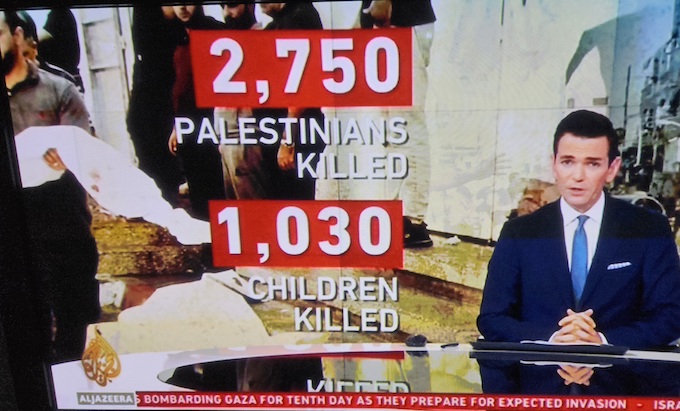
 (@OnlinePalEng)
(@OnlinePalEng) 


 Firstly, Britain envisioned the creation of a British-allied outpost of European civilization in oil-rich southwest Asia as an instrument for projecting British imperial and commercial power over a part of the world in which British capital and empire were already heavily invested (notably in the Anglo-Persian Oil Company [now BP Inc.], Shell Oil, and the Suez Canal).
Firstly, Britain envisioned the creation of a British-allied outpost of European civilization in oil-rich southwest Asia as an instrument for projecting British imperial and commercial power over a part of the world in which British capital and empire were already heavily invested (notably in the Anglo-Persian Oil Company [now BP Inc.], Shell Oil, and the Suez Canal). 

